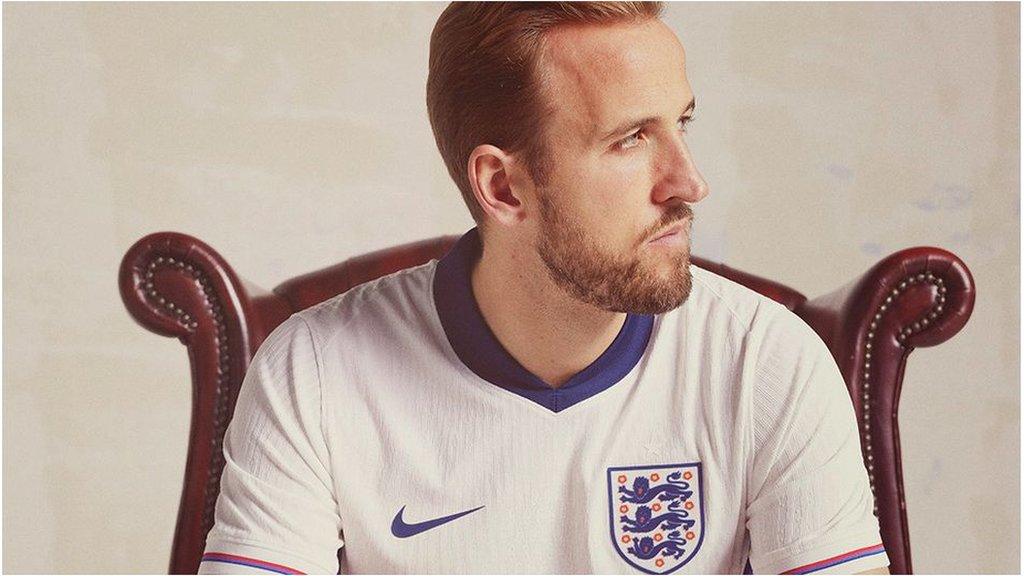Sunak says 'don't mess' with flag on England football kit
- Published
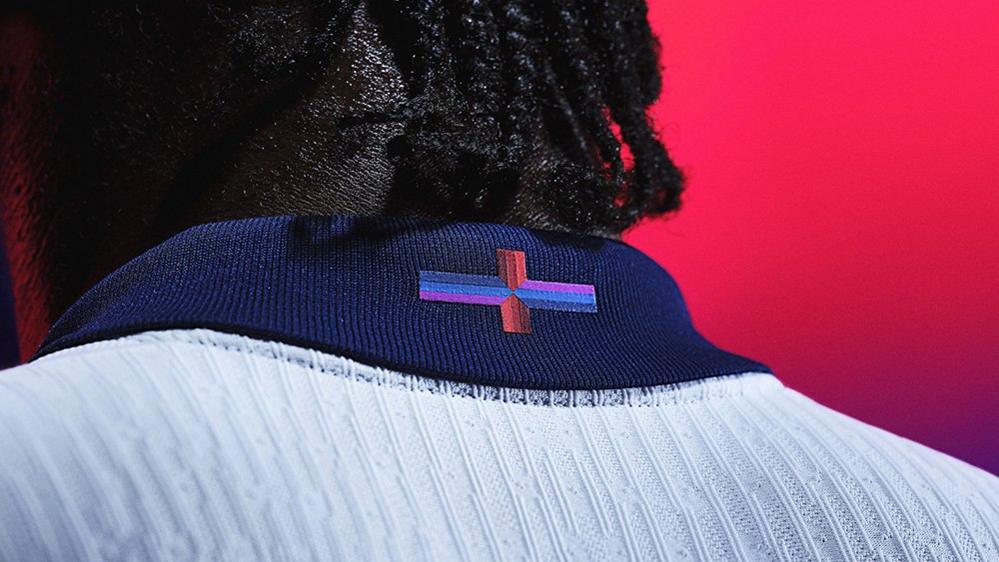
The new England shirt has what Nike calls a "playful update" to the St George's Cross
The cross of St George should not be messed with, Prime Minister Rishi Sunak says, weighing in on a row over the colours of England's football team kit.
Earlier, Culture Secretary Lucy Frazer joined the chorus of prominent voices taking issue with Nike's design for the new kit.
The design takes creative licence with the cross by adding navy, light blue and purple to the traditional red.
BBC News understands there are no plans to change or recall the shirt.
Speaking to reporters, Mr Sunak said he "prefers the original" and the national flag is a "source of pride" and identity.
"When it comes to our national flags, we shouldn't mess with them because they're a source of pride, identity, who we are, and they're perfect as they are," he said.
On social media, the culture secretary said: "Fans should always come first, and it's clear that this is not what fans want. Our national heritage - including St George's Cross - brings us together. Toying with it is pointless and unnecessary."
Labour leader Sir Keir Starmer told The Sun, external that the "flag is used by everybody, it is a unifier, it doesn't need to be changed".
"We just need to be proud of it. So I think they should just reconsider this and change it back," he said.
Nike says the shirt, launched earlier this week ahead of Euro 2024, includes "a playful update to the cross of St George" which "appears on the collar to unite and inspire".
A Nike spokesperson told media outlets: "The England 2024 Home kit disrupts history with a modern take on a classic," inspired by the training kit worn by England's 1966 World Cup winners.
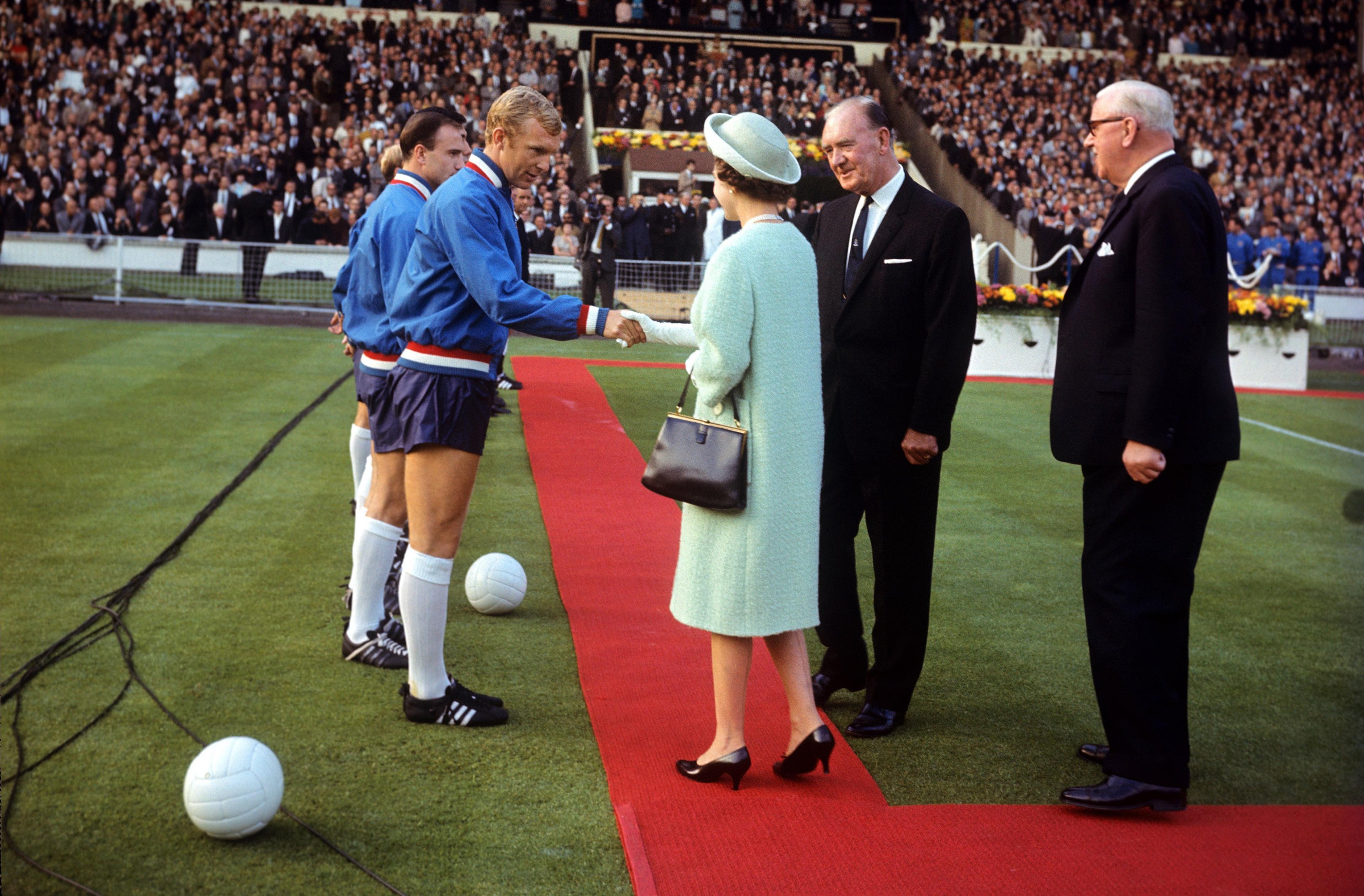
England captain Bobby Moore meeting the Queen in 1966 in the training kit
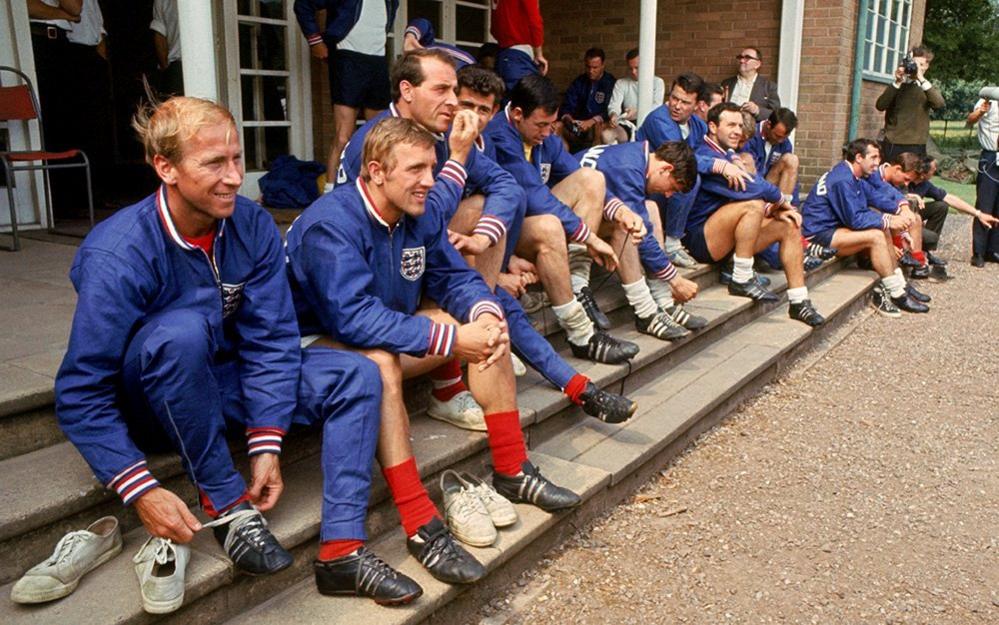
Bobby Charlton (left) among members of the World Cup winning squad
Going on sale on 21 March, the "authentic" version is priced at £124.99 for adults and £119.99 for children, while a "stadium" version costs £84.99 and £64.99 for children.
It's understood the FA is standing by the Nike design and rejects any suggestion that they are trying to or want to change the St George's flag.
The flag traditionally features the St George's Cross bright red on a white background.
Former England goalkeeper Peter Shilton told BBC Radio 4's Today programme he does not agree with the changes, saying "I'm a traditionalist".
Shilton, who played in the 1982, 1986 and 1990 World Cups and is the current record holder for most professional appearances, said the England football team represent the country, "and red white and blue are the colours that we have on our flag".
However, England midfielder Declan Rice and Lionesses striker Alessia Russo both told England Football they rated the new kit as 10 out of 10.
Adrian Bevington, former managing director at the FA, said he personally would not have signed off on this kit.
He told BBC Radio 5 Live Breakfast there would have been a lengthy process before the final design was agreed.
"My instinct would've been to say no. Reading the public room at this moment, I personally wouldn't have signed it off.
"The St George's Cross that flies above Wembley is good enough for me."
It's understood that the flag flying at Wembley stadium will not be changed.
Former UKIP leader and Brexit campaigner Nigel Farage, speaking on GB News, said it was "an absolute joke" and that the new emblem "bears no relationship to the St George's Cross whatsoever".
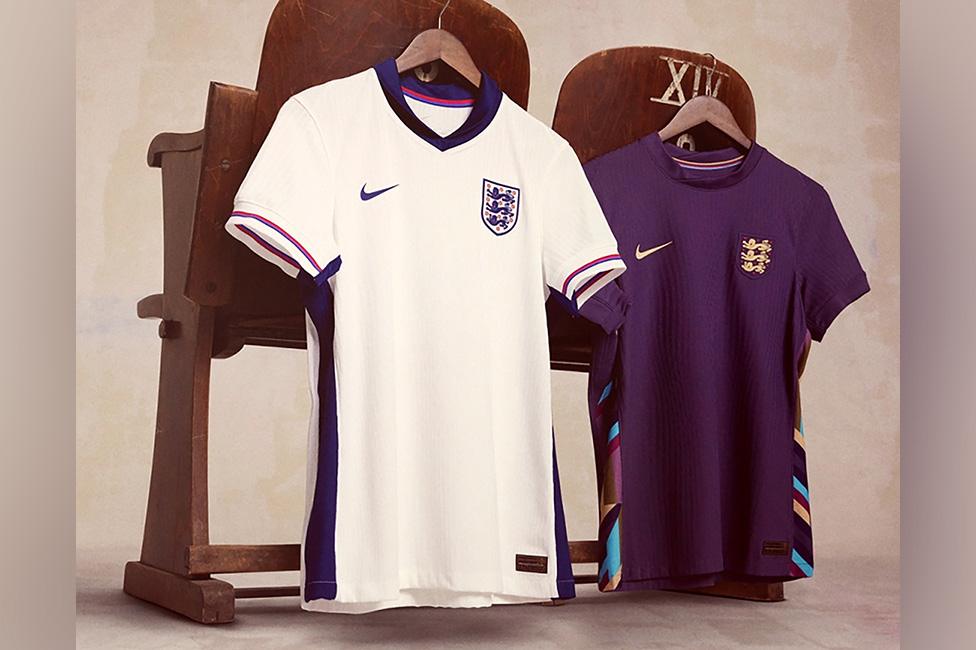
The home and away 2024 England kits
On BBC Radio 5 Live's, Nicky Campbell programme, there was a passionate debate from callers across the country.
Taxi driver Joe in Stirling said he had "steam" coming out of his ears: "People died for that flag thousands of years ago".
Liz in Bury said she was "incensed" and that it was a matter of heritage.
Alison from Harrogate said the red cross "can look a little nationalistic," and felt the new kits were cool and modern.
Bill in Cwmbran said he found the whole thing "utterly hilarious" and didn't understand why people were getting upset about a shirt.
Meanwhile, Katie in Clitheroe said she was surprised the debate was not focusing on the cost of the kit.
Ed Cowburn, who designs football kits for a living, told the Today programme that the St George's Cross only became a regular feature of the England kit from the early 2000s.
"The St George's Cross has probably only appeared on about six kits as a distinct graphic element," he said.
He added that the way the colour scheme was described - as an "update" - should have instead made it clear it was a "graphic element" relating to kit colours.
"You could even argue that the kit itself this time is one of the most traditional we've had for about 20 years, because it has the navy shorts and three lions badge in very traditional colours," he said.
England's men's team are set to wear the new kits for the first time during matches with Brazil and Belgium at Wembley on 23 and 26 March.
Nike said the new design references the training kit of the 1966 World Cup winning team, which was a deep blue and featured blue, red and white stripes along the edges.
A similar, though thinner, stripe pattern graces the cuffs of the shirts and hem of the shorts on the 2024 kit.
The outgoing 2022 kits did not feature the English flag at all.
This is not the first time Nike has faced criticism over its sale of England shirts in recent months. During the Women's World Cup last summer, the sportwear brand was forced to U-turn on its decision not to sell Mary Earps replica goalkeeper shirts, after public outcry.
At the time, the Lionesses star said she found it "hurtful" that fans could only buy outfield players' shirts - and not hers.
Nor is it the first time a flag has been changed on the English football kit. In 2010, the home shirts featured small multi-coloured St George's cross pattern dotted on the shoulders.
Designer Peter Saville told the BBC it was to reflect a "colourful society".
On the kits at the centre of the row today, Saville said: "It's interesting we're talking about it in 2024. I thought it was pretty topical 10 years ago, but maybe it's more so now."
Designer Stella McCartney also found herself on the receiving end of criticism after designing the Team GB kits for the 2012 Olympics with a blue and white Union Jack.
Related topics
- Published19 March 2024
- Attribution
- Published4 April 2024
